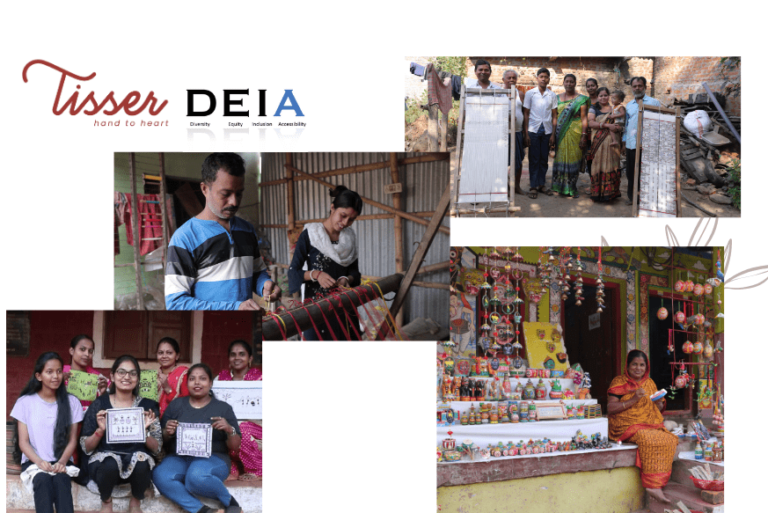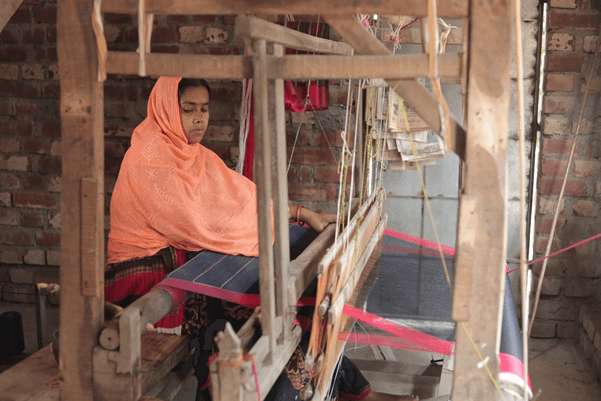Women need opportunities to sustain themselves. There are more opportunities created and utilised in urban landscapes than rural communities, this needs to change for better.
While there has always been a conversation around what women want, there hardly has been a conversation of the same women devoid of a stand, financially and socially. Women constitute 50% of the handicraft sector of India which speaks volumes for the unrealized potential. We can change this story by providing them two things, the gift of vocational skill and a network of employed women in organized sector of labour.
Here’s a story of woman artisan from our clusters.
Shabanacomesfrom a small village calledAngaon in Maharashtra, Angaon, a secluded village with scant job opportunities. She was soon tied to the responsibilities of household, marriage, and kids. She saw her future dazed in the hopelessness of tomorrow until she heard about the Tisser’s mobilization program. Through a floating word around village, she learnt about Warli Artisan Skill Enhancement Program. Reluctant at first to join and step outside the confines of her house to learn something new, she gave herself a chance. Months later to today, she not only has skilled in Warli art but holds an artisan card. Today she has the confidence, certification, and financial empowerment.
There are many women like Shabana in rural pockets of India. Women who are so caught up in the household responsibilities that they lose sight of how enriching their lives can be. Also, women who do take some time out to venture into making a side income to support family, get caught in unorganized sector of labour and debt traps. Tisser India has enabled their empowerment by providing them value and ways of sustaining their livelihood from the limited life of a rural community by the way of cluster development.
Women working in WASEP in collaboration with UNDP and LTI have the opportunity to dedicate few hours from their day to learn the Warli Art form, practice it, to develop a skill and make Warli Products. They are provided legitimate certification in form of an artisan card. This artisan card gives autonomy to be employed for their skill set. The concept of vocational learning is brought to the common woman in rural communities with ease.
What started as a noble initiative in 2015 has helped women in rural communities scale-up towards their maximum potential. Today, we have a network of more than 10,000 artisans,majority being women, we are connected with more than 1800 SHGs, across 18 states in India, we generated employment of more than 80,000 man days in a year with an intention of empowering each woman in a rural community to take her own decisions and partner in their house financially.
The shortcomings of the country is highlighted majorly in the light of covid-19 pandemic and the bouts of joblessness it has caused, especially to women. In times like this Tisser India’s purpose is felt stronger than ever to be a catalyst of change, empowerment and weaving of the cultural legacy of India










